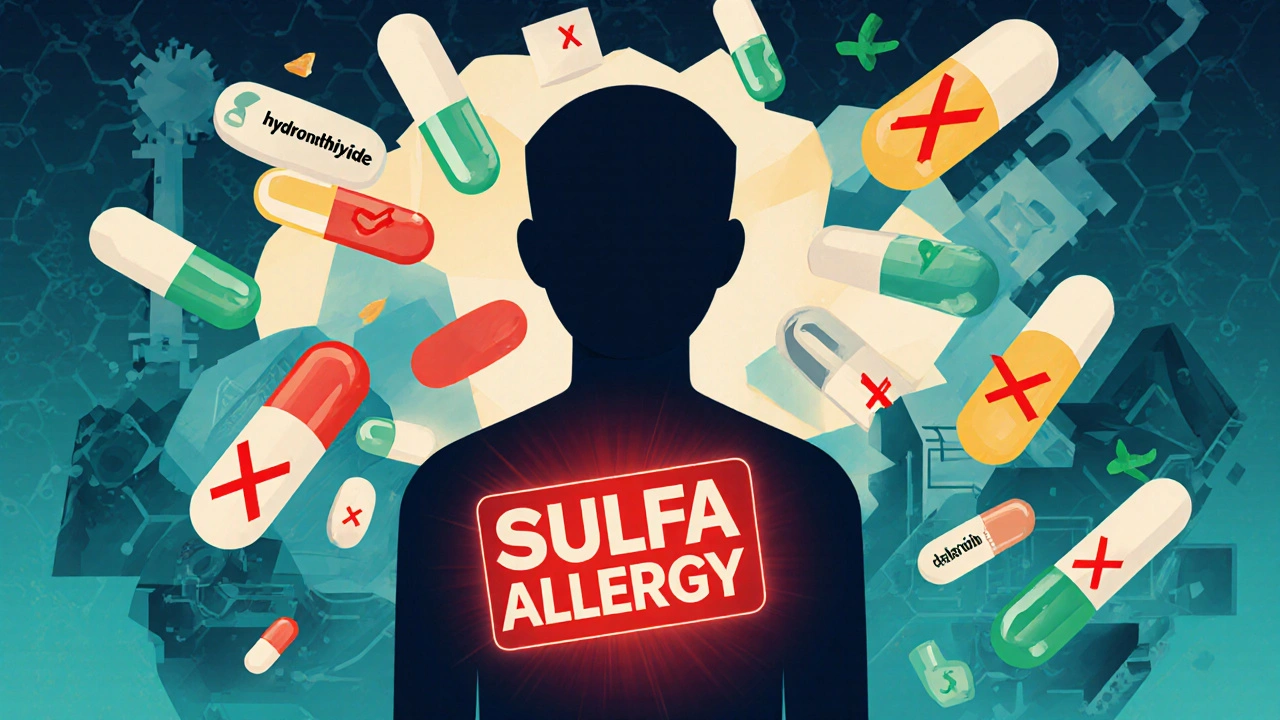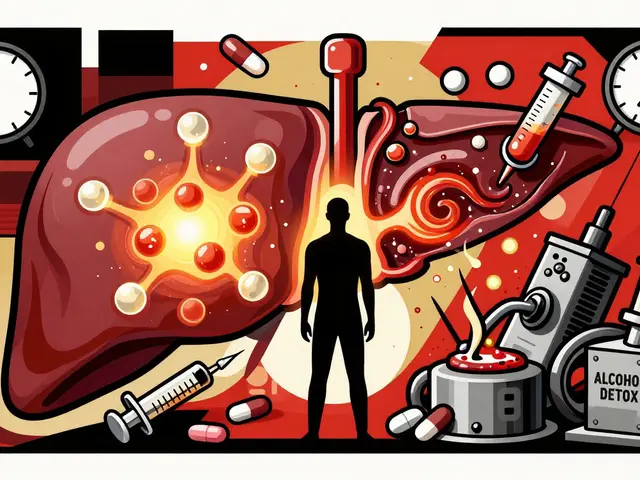Sulfa Allergy: What It Is, How It Affects You, and What Medications to Avoid
When someone has a sulfa allergy, an immune system reaction to sulfonamide-containing drugs. Also known as sulfonamide allergy, it’s not just a mild rash—it can mean trouble breathing, swollen throat, or even life-threatening conditions like Stevens-Johnson syndrome. This isn’t just about antibiotics. Sulfa drugs show up in pills for infections, diabetes, migraines, and even some eye drops.
Many people don’t realize they have a sulfa allergy until they take their first sulfa-containing medicine. Common culprits include Bactrim, Septra, and sulfadiazine—these are all sulfonamide drugs, antibiotics that contain the sulfonamide chemical group. But it’s not just antibiotics. Diuretics like hydrochlorothiazide, diabetes meds like glipizide, and even some arthritis drugs carry the same risk. If you’ve ever broken out in hives after taking one of these, or felt your throat tighten, you might be reacting to the sulfa part.
Here’s the tricky part: not all drugs with "sulfa" in the name are the same. Some, like furosemide or celecoxib, have a different chemical structure and often don’t trigger reactions in people with true sulfa allergies. But doctors won’t guess—you need to know exactly what you’re allergic to. If you’ve had a reaction before, write it down. Tell every doctor, pharmacist, and ER nurse. Keep a list in your phone. A simple mistake could land you in the hospital.
And it’s not just about avoiding pills. Some topical creams, eye drops, and even contrast dyes used in imaging scans contain sulfonamide compounds. If you’ve ever had a reaction to a CT scan dye, that’s worth mentioning too. The key is to understand your personal triggers—not just the label. Your body doesn’t care if it’s called "sulfamethoxazole" or "sulfadiazine." If your immune system says no, it’s no.
What do you do if you’re allergic? You don’t have to live in fear. There are plenty of safe alternatives. For infections, amoxicillin or azithromycin often work just as well. For water retention, spironolactone is a common sulfa-free diuretic. For diabetes, metformin or sitagliptin don’t carry the same risk. The goal isn’t to avoid all meds—it’s to avoid the ones that trigger your body’s alarm system.
Below, you’ll find real-world guides that help you navigate this safely. Some explain how to tell if your rash is truly a sulfa reaction. Others compare safe alternatives to sulfa-based drugs. You’ll see how patients manage this in daily life, what symptoms to watch for, and how to talk to your doctor without sounding paranoid. This isn’t theory. These are the stories and facts people actually use when they’ve been burned by a medication they thought was harmless.





